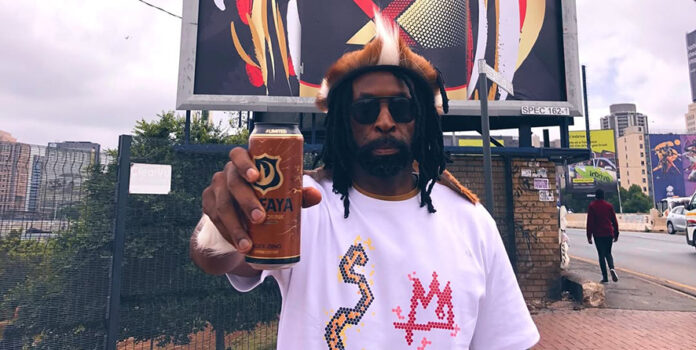Entrepreneur and media personality Sbusiso Leope, the driving force behind Mo Faya, a proudly South African energy drink brand, is one of the 20 chosen SMEs delegates to the China-Africa Economic and Trade Expo, supported by a collaboration between Buffalo International Logistics and the South African International Ecommerce Association.
This initiative highlights the power of international partnerships in propelling South African businesses onto the global stage.
Speaking to Sunday World this week, Leope said the opportunity to be part of this initiative emerged when local media entrepreneur Zandile Nzalo alerted him about the
programme and its opportunities for black businesses in South Africa.
“We have always wanted the opportunity to export our products. Mo Faya has already penetrated markets in Ghana, the DRC, Tanzania, Kenya, Eswatini, Zimbabwe, Botswana, Lesotho, London and the US in drips and drabs. There is a trader in London who stocks up South African energy drinks for a certain community there, and not necessarily for the English community,” shared Leope.
China is a big market, and Leope believes that no entrepreneur would pass up an opportunity like that.
At the expo, Leope aims to secure partnerships with Chinese beverage manufacturers and distributors. “I’m there to showcase Mo Faya’s ethos, values and vision,” he said.
“We want to connect with companies producing water, juices or soft drinks to break into China.”
The South African government will facilitate connections between the 20 SMEs and their Chinese counterparts, a model proven effective in trade missions to places like Dubai.
“I want an opportunity to partner with a player that is already doing well in the beverage industry. It should not be necessarily a player that is doing energy drinks, but even water, juice, etc, is fine.”
The significance of such platforms for SMEs is immense.
“Global markets are a battleground because everyone wants in,” Leope explained. “Accessing new regions can turn a small business into a global player.”
He cited Boss Iced Tea, which expanded into Europe with UK investment through the Remgro Group, and Cape wineries like Spier and Ab Rooi, which secured international markets via partnerships.
“You can’t tackle markets like the UAE, Europe or the US alone. Partners who know the landscape are essential.”
South African SMEs face challenges like navigating US FDA approvals and limited
financial and production capacity.
“Funding is the biggest obstacle,” Leope admitted.
“Even if a Chinese manufacturer loves your product, producing enough to fill a container worth millions is daunting.”
Government support through trade missions is crucial, but private investment and mentorship are equally vital.
“A letter of intent from an international partner can unlock funding,” Leope advised. “Show investors the potential, and doors open.”
Leope’s advice to SMEs at the expo is clear: “This isn’t a getaway, it’s a hustle. Pitch your product, stand proud and show partners the profit in working with you.”
He plans to bring South African clothing brands like Tshepo Jeans and MaXhosa to highlight local culture, potentially brokering deals for others.
“I’m there for Mo Faya, but I could connect a Chinese manufacturer with designers like Thebe Magugu, Laduma Ngxokolo or Theo Baloyi.
“Opportunities multiply when you think broadly.”
The expo strengthens ties between South Africa and China, both Brics members.
“This isn’t just politics,” Leope said. “It’s about leveraging Brics to grow our businesses and showcase talent like Trevor Noah or Black Coffee.”
Representing local products at the expo mirrors South African athletes at the Olympics.
“It’s our moment to shine,” he said, noting the global demand for South African goods in
places like Mexico and London, often driven by the diaspora.




